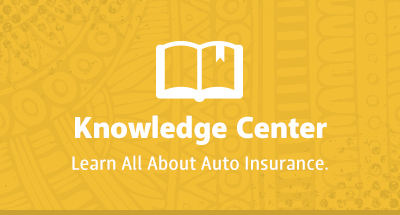What is Non-Standard Auto Insurance?

People get confused when they hear the term ‘non-standard’ while shopping for car insurance, and rightfully so. Most drivers usually are not concerned with the difference between standard and non-standard auto insurance, since they generally care more about monthly rates and provided coverage. However, there are some instances where standard auto insurance won’t work for you — and when that time comes, it’s important to know the difference.
In this article, we offer some insight on what non-standard auto insurance is, why it’s necessary, and how to get it. After reading this, you’ll be prepped with all the necessary information to make an informed decision when purchasing car insurance.
Standard Vs. Non-Standard Insurance
There is shockingly little difference between your standard and non-standard insurance companies, but knowing the distinction is very important.
For example, a standard insurance company aims to insure drivers who present what is considered a “standard risk”; this means the driver has a decent driving and credit record. Most big-name insurance providers seen on commercials are considered standard insurance companies.
A non-standard insurance company is specifically designed for drivers with “high-risk” rating factors. A driver is considered “high-risk” if they have a less-than-perfect driving and credit history. Standard insurance companies generally drop or refuse drivers who are considered high-risk, in which case a non-standard auto insurance company may be the best option.
Standard insurance companies may not be able to provide coverage if any of the following apply to you:
- License suspension
- A DUI/DWI
- Frequent claims
- New or young drivers
- Multiple violations within a short amount of time
- Lapse in coverage
- Missing proof of previous insurance history
- Any combination of the above
If you find out that you are considered a non-standard driver, A Abana can help.
Reasons You May Need Non-Standard Insurance
Keep in mind there are various reasons someone may need non-standard insurance. “High-risk” drivers are not always people who are frequently involved in accidents or file claims. Below-average credit, prior insurance coverage history, and the issuing country of your license can all factor into defining a driver as high-risk.
Below are reasons why a driver may need non-standard insurance:
- Credit history: One benefit offered by non-standard auto insurance companies like A Abana is that you will not get denied the appropriate coverage based on your credit rating. So if you have no credit or bad credit, you can still get auto coverage.
- High-risk driver: If you have a less-than-perfect driving record because your license has been suspended or revoked, you have excessive traffic violations, or have been convicted of driving while intoxicated or driving under the influence (DWI or DUI); you will most likely be labeled a high-risk driver.
- Non-owner’s car insurance: If you want to insure yourself as a driver, this particular insurance policy provides liability coverage for drivers without cars. This particular policy pays for damages and injuries you cause when driving a borrowed or rented car, but it doesn't pay for your injuries or damage to the car you are driving.
- Prior insurance coverage: If you've never been insured before, a standard auto insurance company may deem you as a higher-risk driver, and therefore will not write a policy for an individual who has no current or full auto insurance coverage. So, if you’ve been un-insured anywhere from six months to a year; your best option may be to get car insurance through a non-standard company.
- Lapse in coverage: If you’ve had a previous lapse in coverage, a standard company cannot know or if you’ve made a claim in the past. This makes you a higher-risk driver and as mentioned before, a standard company will most likely deny you, charge you a higher premium. If you’ve had a lapse in coverage; your best option may be to obtain coverage through a non-standard insurance company.
- Driving history: If you lack a U.S driving record or have a foreign license, a non-standard insurance company will most likely be your only option. If you are a teen driver, non-standard companies usually offer the best coverage.
- You are required to carry an SR-22 insurance: Your state may require you to carry an SR-22 to claim financial responsibility if you've been convicted of a DWI/DUI or other form of reckless driving.
If you’re currently shopping for auto insurance and are unsure if you are considered a high-risk driver, you can call or contact A Abana. You can also visit any of our Texas and Nevada locations to speak with an agent about non-standard auto insurance.
Keep in mind that anyone can buy a car insurance policy from a non-standard insurance company. Non-standard auto insurance offers the same or similar coverage options as standard providers, and you do not need to fall into any of the categories listed above to qualify for a non-standard auto insurance policy. In fact, non-standard auto companies often offer better rates than standard insurance companies.
SR-22 Insurance
In the United States an SR-22 (sometimes referred to as a certificate of insurance or financial responsibility filing) is a document required by most states’ Department of Motor Vehicles (DMV) offices for “high-risk” insurance policies. The Department of Motor Vehicles uses the SR-22 insurance in Texas and Nevada to verify that a high-risk driver possesses the state-required insurance.
Who is Required to Carry SR-22 Insurance?
A driver may need an SR-22 insurance if they have one of the following driving violations:
- DWI/DUI (Driving While Impaired/Driving Under the Influence)
- Failure to carry insurance while operating a vehicle
- Multiple moving violations in a short period of time (time period varies in each state)
- Reckless driving
SR-22 requirements vary from state to state, even for reasons not listed above. Find out what kind of driver is required to carry an SR-22 in Texas and Nevada.
Getting High-Risk Driver Insurance
Unlike large standard carriers, a non-standard auto insurance company will cover drivers that have multiple accidents and/or moving violations, a DUI conviction, a foreign driver’s license, or a lapse in insurance coverage. Drivers who require an SR-22 will also find a non-standard insurance company to be the best option.
Whether you’re a high-risk driver seeking insurance coverage in Nevada or Texas, or if you simply are interested in how much you can save by switching to a non-standard carrier, get a free insurance quote with A Abana.






